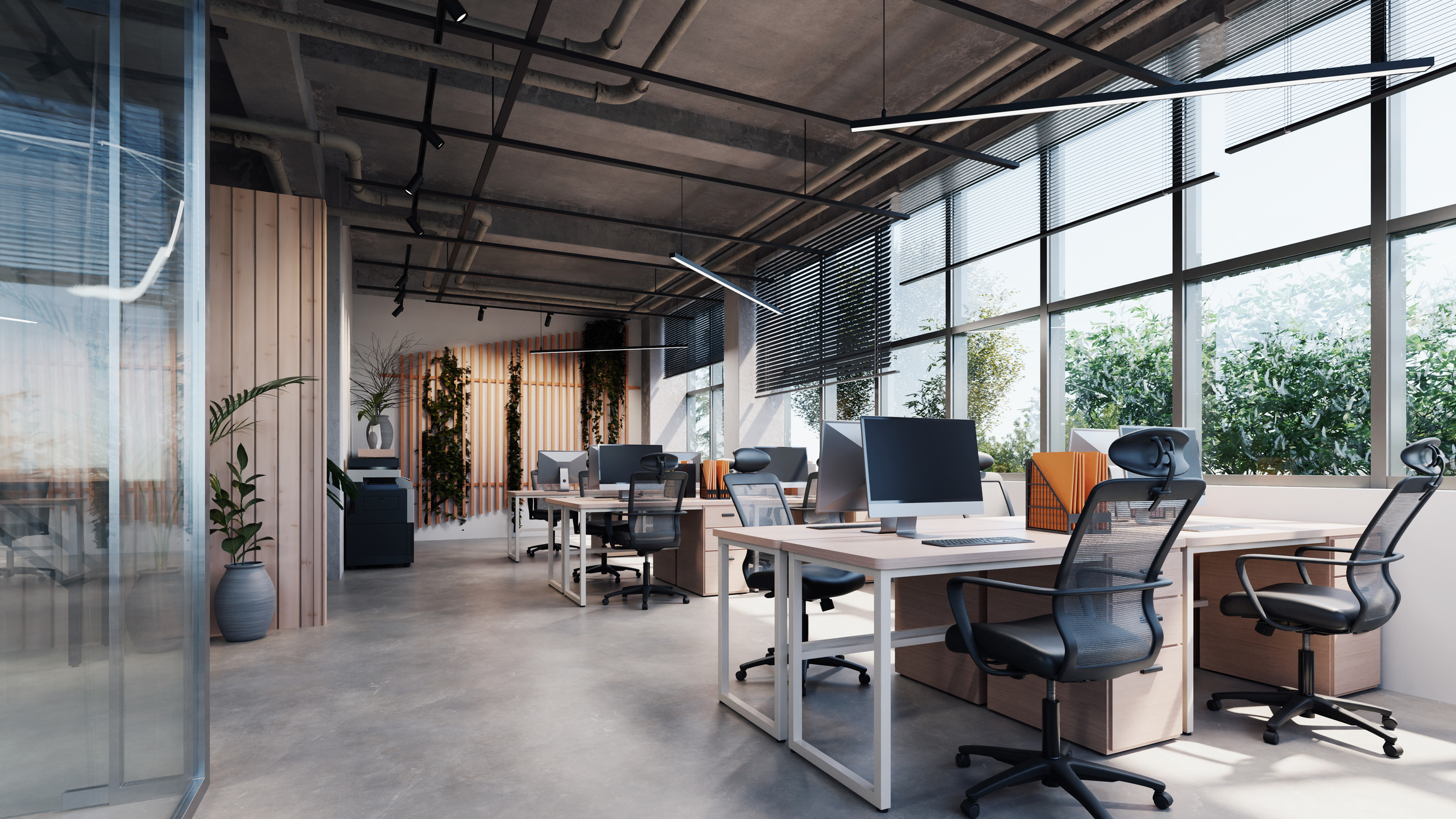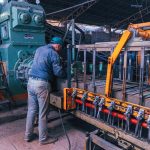In the gleaming towers of Melbourne's central business district, a silent, multi-million-dollar liability is accumulating on corporate balance sheets. A staggering 18% of the city's premium office space sits empty, a vast landscape of ghost offices that represent dormant potential and sunk costs for businesses across Australia. This vacancy rate stands as one of the highest in the country, prompting many leaders to view their real estate portfolios as a burdensome relic of a bygone era.
For most, this void is a crisis; a stark reminder of underutilised capital in a volatile economic climate. However, for a select group of forward-thinking advisors, this disruption is not a threat but a transformative opportunity for strategic realignment and accelerated growth.
This new perspective is championed by Yianni T., Partner at Melbourne’s original coworking community, Inspire9. He argues that the era of the decade-long lease as a corporate status symbol is definitively over, replaced by a new C-suite mandate for agility and capital efficiency. While many see empty floors and depreciating assets, Yianni sees liberated capital ready to be redeployed into innovation, talent, and market expansion.
As a leading advisor on real estate agility and workplace strategy, he is guiding executives through a radical pivot: transforming their largest cost centre into their most flexible asset. By strategically unbundling the traditional office into its core components—a prestigious address, on-demand meeting spaces, and a vibrant professional network—he believes CEOs can harness this market shift to build more resilient and competitive enterprises.
A New Blueprint for the Corporate Footprint: A Conversation with Yianni T.
CEO Today: Many executives associate virtual offices with little more than a P.O. Box. How is Inspire9 challenging that outdated perception?
Yianni T.: That perception is about a decade out of date and fails to recognise the modern distributed headquarters model. Today, a premium virtual office is a strategic tool for establishing a capital-light, high-impact presence. For our clients, it begins with securing a premium business address in Richmond—Melbourne’s thriving tech and innovation hub—for ASIC registration and building immediate client-facing credibility. But the true return on investment is delivered through the on-demand ecosystem it unlocks. Our co-working Richmond spaces provide the ability to book a fully-equipped boardroom with an hour's notice for an investor presentation, access a private phone booth for a sensitive call, or use our professional mail handling service to manage critical documents securely. It’s about projecting professionalism and having enterprise-grade infrastructure on demand, without the multi-million dollar overhead.
CEO Today: What is the financial case for a CEO who may be hesitant to abandon a traditional lease agreement?
Yianni T.: The numbers present an undeniable case for change. A modest CBD office lease can easily exceed $250,000 per year in rent and outgoings, a figure that becomes difficult to justify when that space is utilized, on average, less than 60% of the time in a hybrid model. By transitioning to a virtual office solution, which costs less than one percent of that annual expense, a CEO immediately frees up an immense amount of capital. That capital can then be deployed directly into growth engines: hiring two senior developers, doubling the annual marketing budget, or accelerating research and development. We encourage leaders to stop thinking of an office as a sunk cost and start seeing their workplace strategy as an active instrument for intelligent capital allocation. In this market, it is one of the most powerful financial decisions a CEO can make.
We encourage leaders to stop thinking of an office as a sunk cost and start seeing their workplace strategy as an active lever for capital allocation. It’s the most powerful financial decision a CEO can make in this market.
CEO Today: Beyond significant cost savings, how does this agile model impact a company’s ability to attract and retain top-tier talent?
Yianni T.: It is absolutely critical in the current talent landscape. The most skilled professionals now expect flexibility as a baseline offering, not a perk. Insisting on a mandatory five-day-a-week office presence immediately shrinks your talent pool to a 20-kilometre radius around your headquarters. Conversely, a virtual-first model expands your potential talent pool to a national, or even global, scale. However, top talent also craves connection, culture, and a sense of belonging. The solution is not pure remote work, but providing an optional, high-quality third space. Our Inspire9 hub in Richmond becomes a cultural anchor for our clients’ teams. They use the physical space for quarterly strategy days, project kick-offs, and social events, giving employees the autonomy they demand while providing the professional infrastructure and community they need to thrive.
The Market Confirms the Shift: The Surge in Flexible Solutions
Yianni’s perspective is not merely anecdotal; it is strongly reflected in broad market trends that confirm a fundamental restructuring of commercial real estate. A recent report from the Property Council of Australia revealed that the flexible office market has recorded its strongest period of growth since 2020, with a notable surge in demand for spaces that support hybrid work. Specifically, hybrid-flex offerings surged by an incredible 26% in Melbourne alone, underscoring a definitive shift in corporate strategy away from rigid, long-term commitments.
This data aligns with market analysis from commercial real estate giant CBRE, which has documented a significant flight to quality. This trend shows businesses actively abandoning outdated, low-grade properties in favour of higher-quality, flexible, and amenity-rich spaces for the times they do choose to gather physically. This market movement confirms that business leaders are no longer just buying square footage; they are making strategic investments in experience, agility, and operational efficiency.
The Future-Proof Foundation
The message for modern executives is unequivocal: the monolithic office of the past is an anchor in today's fast-moving economy. As Yianni T. demonstrates, the true measure of a company's foundation is not its square footage, but its capacity to adapt to market dynamics with speed and intelligence.
By embracing a capital-light, agile real estate strategy, leaders can transform a legacy liability into a dynamic asset that fuels innovation. This crucial pivot allows them to reinvest in their people, their products, and their long-term growth, building a legacy of resilience and forward-thinking leadership. For CEOs navigating Melbourne's new commercial void, the opportunity is not simply to survive the disruption, but to build a leaner, stronger, and more competitive organization from the ground up.
Actionable Insights: Your Virtual Office Questions Answered
- What is a virtual office service? A virtual office gives your business a professional address and corporate presence without the need for a physical desk. Inspire9’s service includes professional mail handling, a registered business address in Richmond, and optional on-demand access to meeting rooms and coworking spaces.
- Can I use Inspire9’s address for my registered business address? Yes. The service allows you to use our premium Richmond address as your official business address, which is suitable for ASIC registration, Google Business Profiles, and all official client communications.
- How much does a virtual office at Inspire9 cost? Plans are designed for accessibility and high value, starting from just $40 per month. This provides a cost-effective alternative to traditional leases, with flexible upgrades available for meeting room or coworking access as your business needs change.
- Is a virtual office suitable for remote teams and startups? Absolutely. It is an ideal, cost-effective solution for startups, remote-first companies, and freelancers who want to establish a professional, credible presence in Melbourne without the significant financial commitment of a physical office lease.
To learn more about building a strategic, capital-light presence in Melbourne, find details on the virtual office Melbourne CBD solutions offered by Inspire9.













